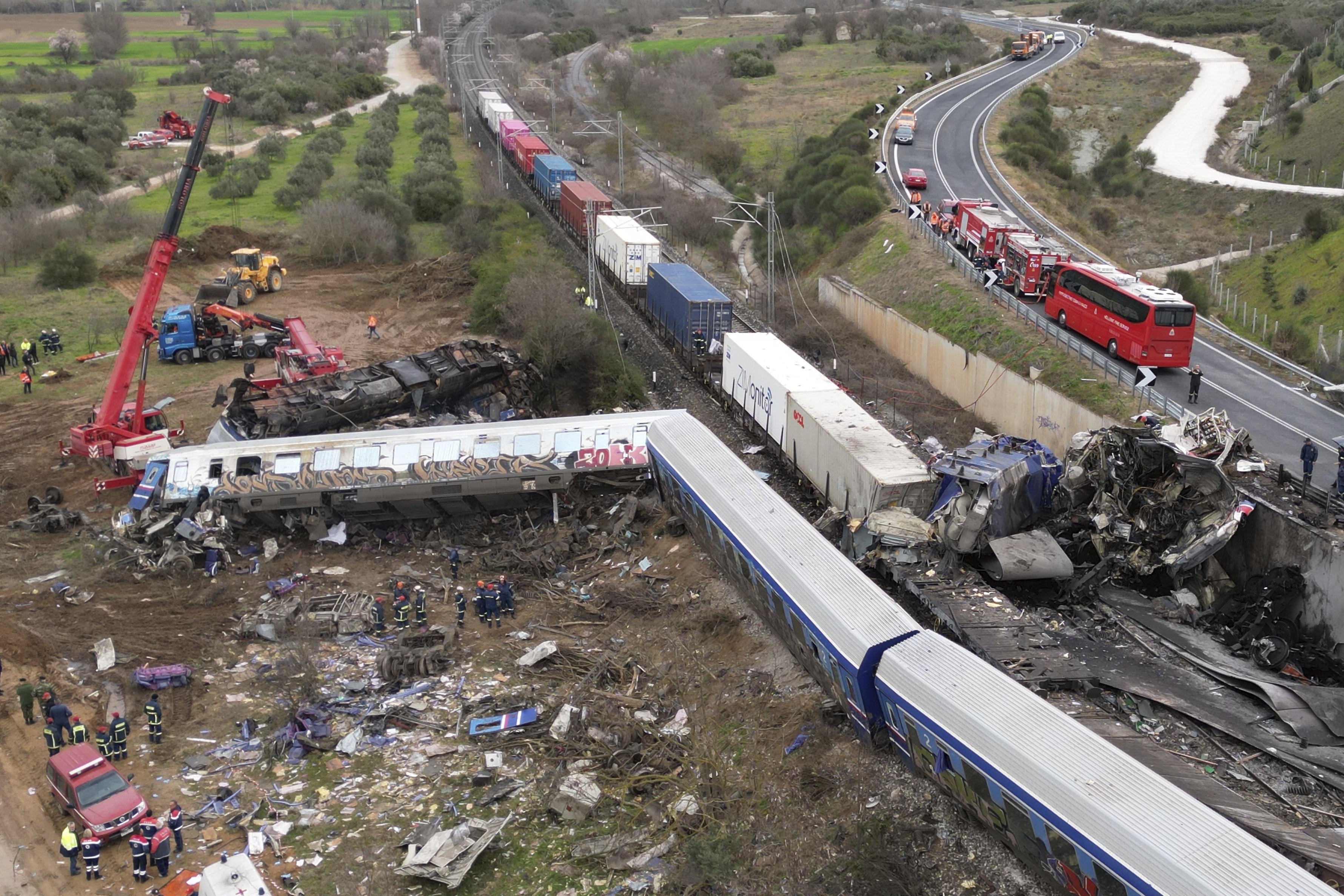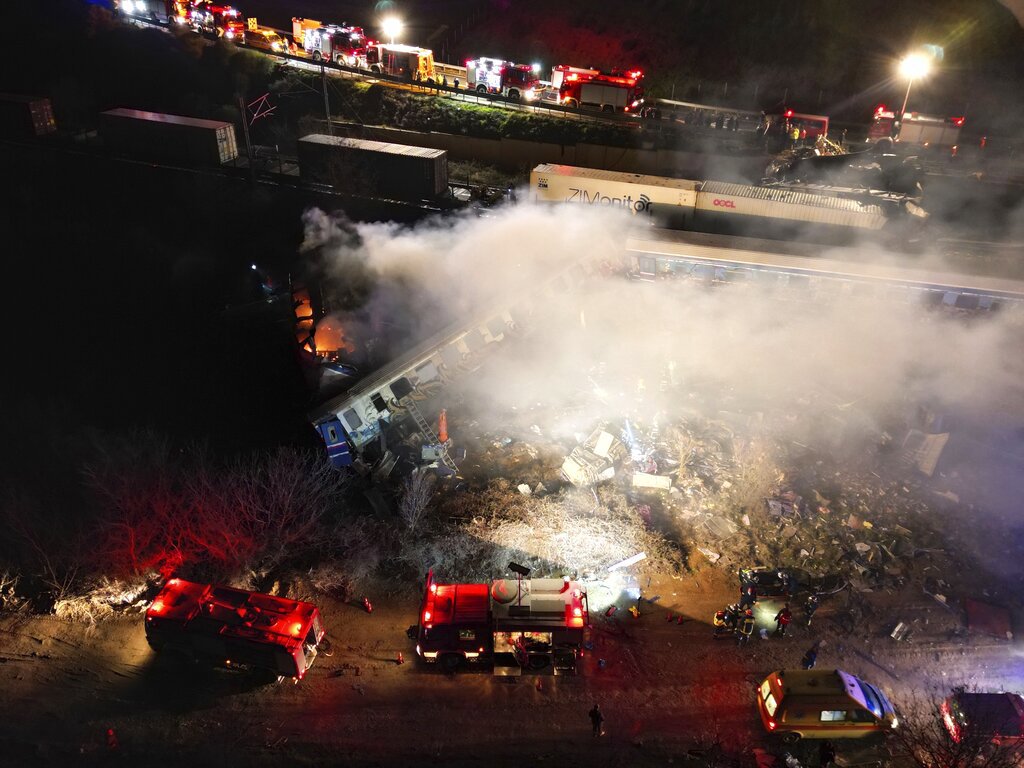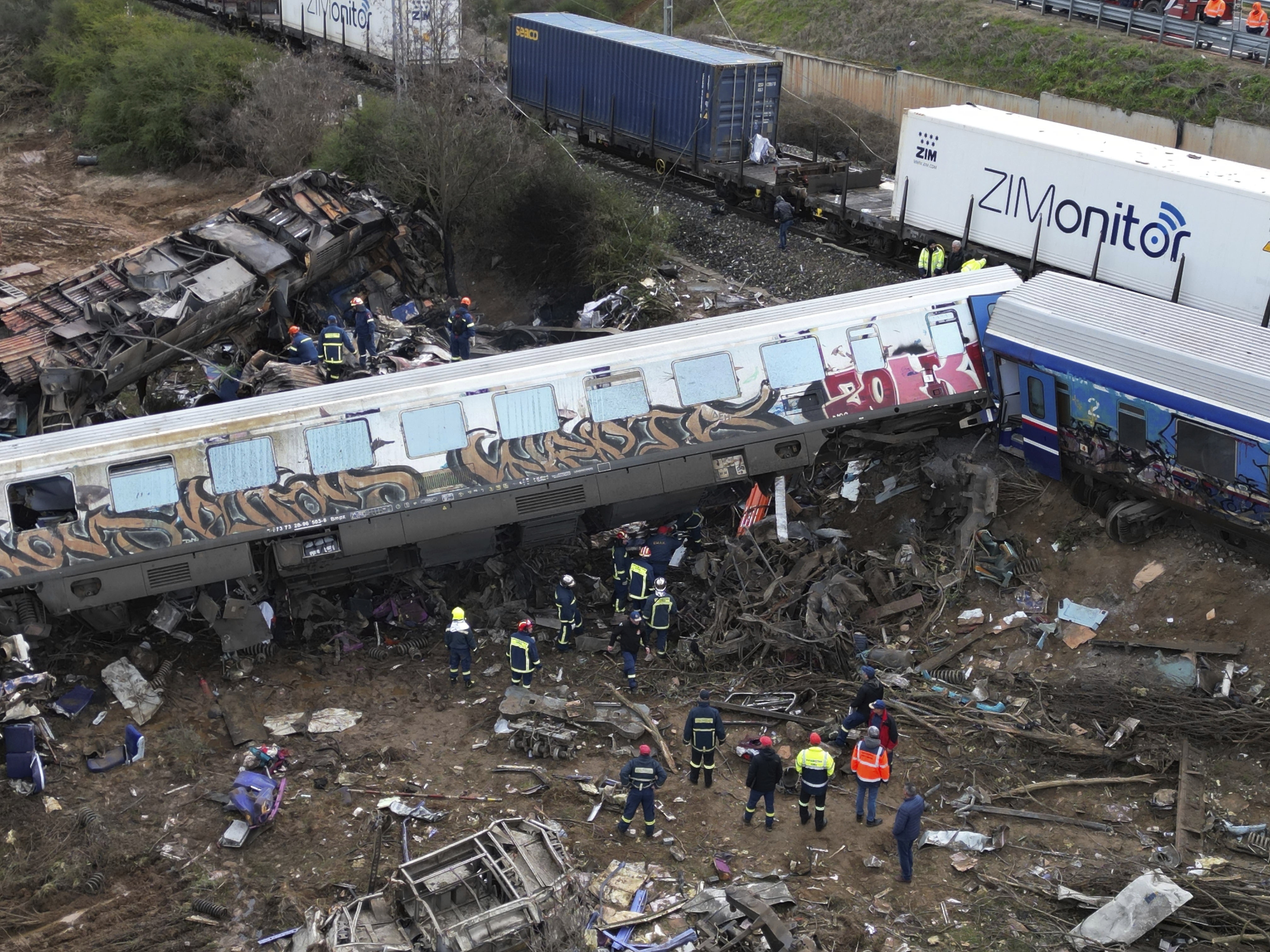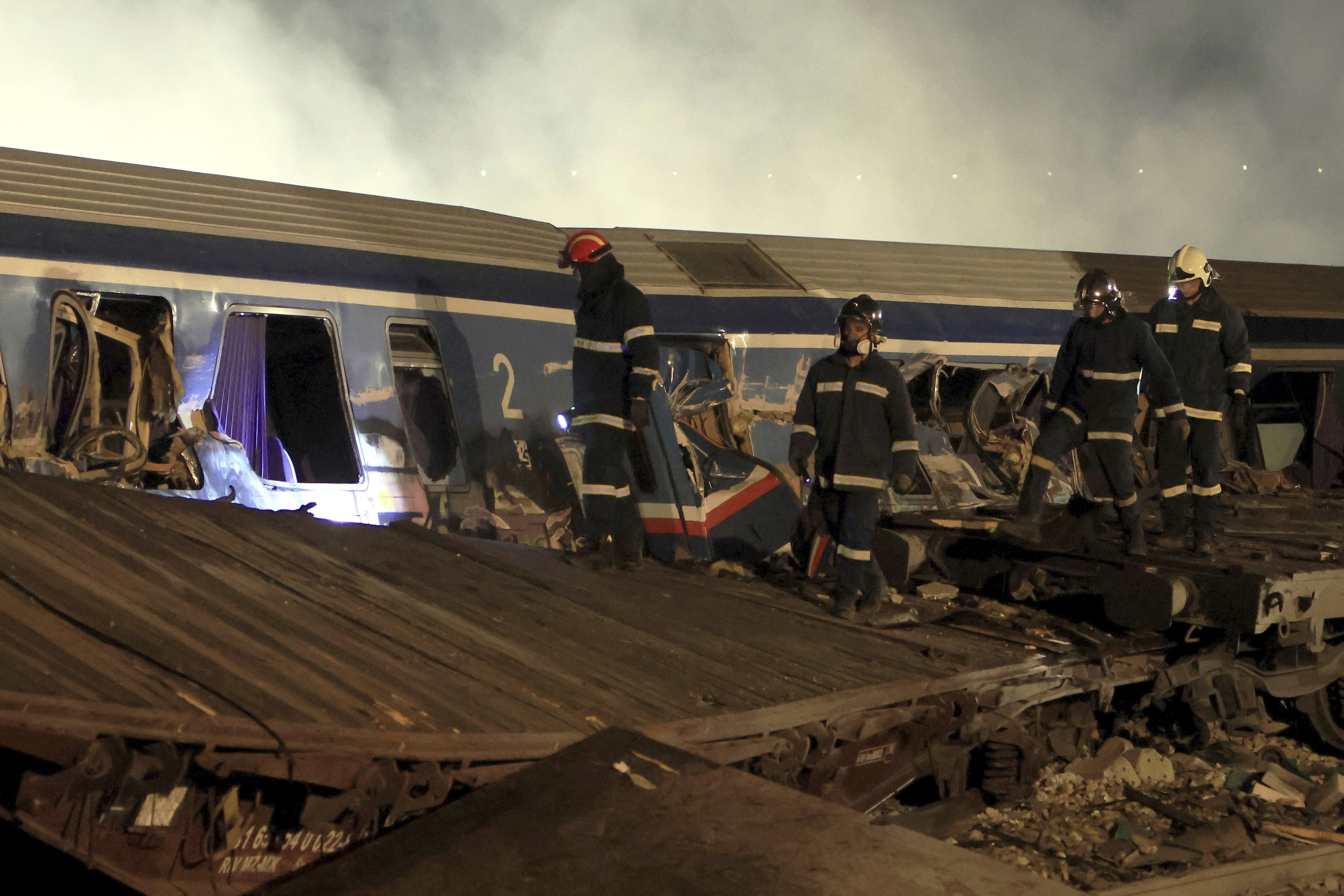Greek Transport Minister Kostas Karamanlis has resigned after a passenger train and a freight train crashed head-on in central Greece overnight, killing at least 36 people and injuring scores.
Rescuers on Wednesday delved through flattened, burned-out carriages for survivors and bodies as the minister said he felt it was his "duty" to step down "as a basic indication of respect for the memory of the people who died so unfairly".
The cause of the crash near the Vale of Tempe, about 380 kilometres north of Athens, was not immediately clear, but the stationmaster in the nearby city of Larissa was arrested Wednesday. The police did not release his name. Another two people have been detained for questioning.
READ MORE: Toyah Cordingley's family 'delighted' accused killer extradited
It's unclear at what speed the two trains were travelling when they ran into each other just before midnight on Tuesday (9am Wednesday AEDT) but state broadcaster ERT said it was more than 140km/h.
Survivors said the impact threw several passengers through the windows of train cars. ERT quoted rescuers saying they found some victims' bodies 30-40 metres from the impact site.
Stefanos Gogakos said it felt like an explosion, while from his rear carriage flames could be seen at the front of the train.
"The glass in the windows shattered and fell on top of us," he told ERT.
"My head hit the roof of the carriage with the jolt. Some people started to climb out through the windows because there was smoke in the carriage.
The doors were closed but in a few minutes train staff opened them and we got out."
Multiple cars derailed and at least three burst into flames. On Wednesday, one carriage lay atop the crumpled remains of another two.
"Temperatures reached 1,300 degrees Celsius, which makes it even more difficult to identify the people who were in it," fire service spokesperson Vassilis Varthakoyiannis said.
Many of the approximately 350 people aboard the passenger train were students returning from Greece's raucous Carnival, officials said. This year was the first time the three-day festival, which precedes Lent, was celebrated in full since the start of the pandemic in 2020.
"This is a terrible tragedy that is hard to comprehend," said Deputy Health Minister Mina Gaga.
"I feel so sorry for the parents of these kids."
READ MORE: UK students stranded on ski trip after hotel 'shreds passports'
On Wednesday, the government declared three days of national mourning.
"This is an indescribable tragedy," government spokesman Giannis Oikonomou said, adding that 500 workers from emergency services were at the scene of the crash.
After sunrise, rescuers turned to heavy machinery to start moving large pieces of the trains, revealing more bodies and dismembered remains. Officials said the army had been contacted to assist.
Greek Prime Minister Kyriakos Mitsotakis was to visit the scene later in the day.
Costas Agorastos, the regional governor of the Thessaly area, told Greece's Skai Television the two trains collided head on at high speed.
"Carriage one and two no longer exist, and the third has derailed," he said.
The trains crashed just before the Vale of Tempe, a gorge that separates the regions of Thessaly and Macedonia.
READ MORE: Dozens of cough medicines recalled over potentially deadly ingredient
Survivors said the impact threw several passengers through the windows of train cars. They said others fought to free themselves after the passenger train buckled, slamming into a field near the gorge, about 380 kilometres north of Athens.
"There were many big pieces of steel," said Vassilis Polyzos, a local resident who said he was one of the first people on the scene. "The trains were completely destroyed, both passenger and freight trains."
He said dazed and disoriented people were escaping out of the train's rear cars as he arrived.
"People, naturally, were scared — very scared," he said.
"They were looking around, searching; they didn't know where they were."
Eight rail employees were among those killed in the crash, including the two drivers of the freight train and the two drivers of the passenger train, according to Greek Railroad Workers Union President Yannis Nitsas.
Greece's firefighting service said some 66 people were hospitalised, including six in intensive care.
"The evacuation process is ongoing and is being carried out under very difficult conditions due to the severity of the collision between the two trains," said fire service spokesperson Vassilis Varthakoyiannis.
More than 200 people who were unharmed in the crash or suffered minor injuries were transported by bus to Thessaloniki, 130 kilometres to the north. Police took their names as they arrived, in an effort to track anyone who may be missing.
A teenage survivor who did not give his name to reporters said that just before the crash he felt a strong braking and saw sparks — then there was a sudden stop.
"Our carriage didn't derail, but the ones in front did and were smashed," he said, visibly shaken.
He added that the first car caught fire and that he used a bag to break the window of his car, the fourth, and escape.
Rail operator Hellenic Train said the northbound passenger train to Thessaloniki, Greece's second-largest city, had about 350 passengers on board.
Hellenic Train is operated by Italy's FS Group, which runs rail services in several European countries.
Sign up here to receive our daily newsletters and breaking news alerts, sent straight to your inbox.








